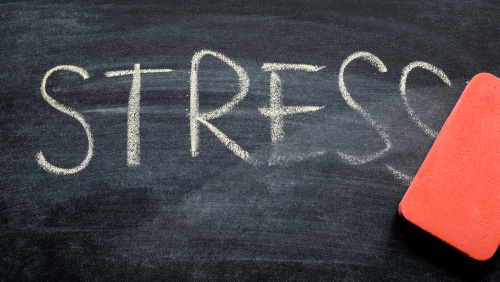Sometimes we make one small change, then everything changes. At some point in our lives, most of us have asked the question, “What’s in it for me?” or “What’s in this for me?” Of course, this is based on the assumption that you and I are separate body/minds trying to get what we want and avoid what we don’t want. As we progress towards enlightenment, the way we see ourselves expands. It may start with an intellectual understanding that we are pure consciousness which is observing our body and the stream of thoughts which we call the mind. Then, when we learn to meditate, we gain experience of observing what’s going on in our ‘inner space’ as Swamiji* calls it. We know we’re pure consciousness, but somehow we still don’t live that way. We may feel blissful during meditation or yoga, but the rest of life is still a struggle.
Here are some other questions we ask ourselves: “What’s the solution?” “How can I solve this?” I asked these questions for many years. They felt more positive than “What’s in it for me?” At least I was trying to do something constructive, and I didn’t feel so selfish. However, I still had to wrestle with one problem after another.
One day, one of Swamiji’s teachers suggested another question: “How can I contribute to this situation?” He said that if we couldn’t contribute, we should stay silent or gracefully exit. I immediately began to try this in every aspect of my life, whether I was working, talking to friends, or posting material online. I kept asking myself the question, “How can I contribute to this situation?” If there was nothing I could contribute, then I didn’t do anything. If I was able to contribute something, then I did so, and moved on. On one occasion, I listened to members of an advisory board who talked for the best part of an hour. Towards the end, an idea came to me which I shared with them. One of the advisory board members was very enthusiastic about it. Then the founders started thinking about how they could put it into practice. I didn’t need to say anything else.
I particularly noticed the difference in situations where people were getting stressed. Instead of thinking “How can I solve the situation?” I asked myself “How can I contribute to this situation?” If there was something I could say or do, I did it right away. Then I let go. Whenever I did this, the situation solved itself. There was no need for me to get embroiled in some big argument.
If we stand back for a moment, it’s not hard to understand why asking this question works so well. Everything is Supreme Consciousness, known in Sanskrit as Paramashiva. That includes us. We don’t need to solve every situation, using our minds and our bodies. We just need to keep contributing, which is what Swamiji does.
I find that continuously contributing and letting go keeps me relaxed and happy with what I’m doing. The results take care of themselves.
This approach dovetails with letting go of expectations. Many of us have goals. There are things we want to happen in our lives. We may also have some ideas about how they’re going to happen. All of this is fine. However, we create stress for ourselves and others when we have fixed ideas – or expectations – about how they’re going to happen. When you think about it, it’s ridiculous. The cosmos is constantly moving along, and we’re part of that. Then we try to impose our fixed ideas on what should happen – and when. It’s much better to contribute and let go. Then we allow everything to happen naturally, without stress.
*HDH Sri Nithyananda Paramashivam: www.nithyananda.org
Copyright John Purkiss 2021

Leave a Reply